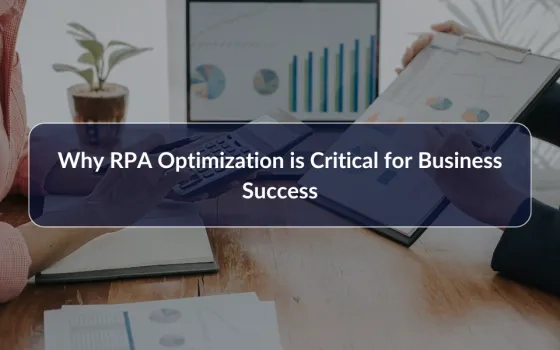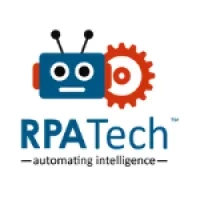Business process automation is increasingly catching among banking, financial services and insurance (BFSI) services in an attempt to reduce costs and enforce stringent regulations on their processes. Process automation is useful in enhancing service delivery of BFSI companies as the operations are made automatic and more energy efficient at a minimum cost, with minimum errors.
What is Business Process Automation (BPA) in BFSI?
In a business process automation solution, technology is used to carry all the routine tasks and business functions that do not require human labor.
Importance in the Context of BFSI:
-
Streamlines the handling of large-scale transactions such as in automated data processing systems.
-
Allows for digital process automation, so that decisions are quicker.
-
Provides the resources needed to automate business processes like those that have rigorous regulation processes.
How BPA Improves Operational Efficiency in BFSI
Business process automation in the BFSI could create a certain speed, precision and cost benefit. Here’s how:
-
Streamlined Workflows:
-
Process automation reduces the possibility of significant manual entry of information and limits the occurrence of errors.
-
The automated data processing ensures that the flow of information in systems is easy.
-
Enhanced Productivity:
-
Automated business processes aids the employees to focus on the value added process as routine work is performed.
-
Enterprise process automation results in the optimal consumption of the resources, thereby improving productivity.
-
Cost Reduction:
-
Human interaction is minimal and this decreases the costs of labor and reduces the operating expenses.
-
When it comes to the speed of payoff in business process automation software, it typically includes efficiency.
Key Benefits of Business Process Automation in Banking, Financial, and Insurance Sectors
Business process automation in the BFSI industry is all about doing things beyond technology and doing business in a better way as to cater to the needs of its customers and comply with regulatory requirements. The following are some of the benefits:
-
Improved Accuracy:
-
Regulatory Compliance:
-
Business process automation ensures that the operations are legal.
-
Real time monitoring is possible using digital process automation, making this handy in preparation of an audit.
-
Enhanced Customer Experience:
-
Automated business processes also imply that service to customers is delivered in a shorter period and therefore customer satisfaction will rise.
-
Business process automation tools enable additional personalization of customers and timely response.
-
Scalability and Flexibility:
-
The additional business process demands may be extended in the existing business process automation tools.
-
Enterprise process automation gives versatility to change according to the emerging market forces.
-
Cost Efficiency:
The Role of Automation in Ensuring Compliance in BFSI
Compliance is a paramount concern in the BFSI sector. With the regulatory framework in place, a high degree of precision and transparency is required in operations. Here’s how automation in business processes contributes:
-
Real-Time Monitoring:
-
Automated data processing systems monitor the transactions and processes in an ongoing manner.
-
With the initiation of workflow through the automated process, compliance checks are embedded.
-
Consistent Reporting:
-
Risk Mitigation:
-
Organizations can identify and address compliance issues by using automated business processes.
-
Business process automation software supports the creation of audit trails, ensuring transparency.
Business Process Automation Tools and Software for BFSI
Choosing the right tools is critical to automate business processes in BFSI. Here are some commonly used solutions:
-
Robotic Process Automation (RPA) Platforms:
-
Enterprise Resource Planning (ERP) Systems:
-
BPM Software:
-
Business process automation software that helps design, execute, and monitor processes.
-
Provides a framework to automate business processes across departments.
-
Cloud-Based Solutions:
Digital Process Automation: Shaping the Future of BFSI
The shift toward digital process automation is reshaping how BFSI organizations operate. This transformation is built on integrating modern technologies with existing business frameworks.
-
Adapting to Change:
-
Innovation in Customer Engagement:
-
Operational Resilience:
-
Process automation provides the resilience required to manage unexpected disruptions.
-
With enterprise process automation, organizations can maintain service continuity.
How BPA Streamlines Customer Service and Internal Operations in BFSI
Streamlining customer service and internal operations is a key outcome of business process automation. The benefits include:
-
Faster Response Times:
-
Improved Internal Collaboration:
-
Process automation tools break down silos, enabling better communication.
-
Business process automation services facilitate smooth information exchange.
-
Consistent Quality of Service:
Best Practices for Implementing BPA in BFSI Organizations
When implementing business process automation in BFSI, it is important to follow these best practices to ensure a smooth transition:
-
Assess Current Processes:
-
Choose the Right Tools:
-
Plan for Change Management:
-
Monitor and Optimize:
Overcoming Challenges in BPA Adoption within BFSI
Adopting automation of business processes in BFSI comes with its set of challenges. Here are some common obstacles and ways to overcome them:
-
Resistance to Change:
-
Integration Issues:
-
Security Concerns:
Business Process Automation Examples in BFSI
Real-world business process automation examples in the BFSI sector illustrate how automation can drive success:
-
Customer Onboarding:
-
Process automation enables banks to reduce the time used to open accounts by automatically processing information and auditing customer information.
-
This automation of business processes reduces error factors and increases the service delivery.
-
Loan Processing:
-
The business process automation tools have been employed to evaluate loan applications within a short time and in an accurate manner.
-
Digital process automation enables institutions to minimize processing time and enhance the quality of decisions.
-
Claims Management:
-
Enterprise process automation is also used by insurance companies to process claims.
-
Automating business processes in the region also facilitates fraud reduction, as well as faster claim settlement.
Final Thoughts on the Future of BPA in BFSI Industry
A revolution in business process automation is going to redefine the BFSI industry. Since organizations are increasingly turning towards automated business processes and digital process automation, we can anticipate the following:
-
Continuous Improvement:
-
Stronger Compliance Frameworks:
-
With the change in regulatory requirements, automation of business processes will be fundamental as this will help in obtaining compliance with the regulations.
-
Automated data processing will be even more crucial due to the possibility of monitoring and tracing every step.
-
Enhanced Customer Experiences:
-
With the aim of automating business processes, the BFSI institutions will be in a better position to fulfill the needs of the customers in real-time.
-
Business process automation services will give a competitive advantage in customer communication and service provision.
FAQs
What is Business Process Automation (BPA) in BFSI, and how does it work?
Business Process Automation (BPA) is a technique used in BFSI that involves the adoption of digital technology to automate general banking, financial and insurance services. BPA facilitates work by automating manual processes with computerized procedures. It makes use of artificial intelligence, robotic process automation, and analytics to increase efficiency and decrease errors to achieve faster and more consistent customer and operational results.
How does BPA improve operational efficiency in banking and insurance?
BPA enhances the efficiency of operations due to automating routine performance, minimizing human errors, and facilitating employee focus to strategic tasks. Automation accelerates the processing, guarantees consistency, streamlines the working process, maximizes data precision and reduces operational expenses in the banking and insurance sectors.
3. What are the main challenges BFSI companies face when adopting BPA?
Some of the challenges BFSI companies implementing BPA would face are legacy system integration, high upfront cost, resistance to change, and security threat to hacking. Feeding of correct data and smooth transitions of workflow are also a challenge.
4. What tools and software are commonly used for BPA in BFSI?
Some of the common BPA tools used in the BFSI are the Robotic Process Automation (RPA) platforms, workflow management software, and business intelligence applications. Process automation is done using popular tools such as UiPath, Blue Prism, and Automation Anywhere. Data integration, analytics as well as the smooth running operations in financial services are facilitated through ERP systems, low-code platforms and specialized BPM suites.
5. How does BPA help in ensuring regulatory compliance in BFSI organizations?
BPA supports regulatory compliance, incorporating standardized processes, uniform documentation, and audit trails. At BFSI, workflow through software guarantees proper management of the data, timely reporting, and compliance with industry standards. Automated controls limit the likelihood of human errors and also simplify compliance practices, hence limiting risks and improving governance within financial operations.














